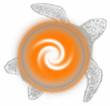oop |
Discworld creator help |
oop |
Name
oop - Object-Oriented Programming concept
Description
OOP stands for "Object-Oriented Programming".
If you know how to code in C or Pascal or even one of the modern BASICs (with procedures), then you already have many of the skills you will need to program effectively in LPC. The main thing you need is a skill in translating your ideas into a sequential flow of steps (that a computer can perform). However, LPC is also an object-oriented language. To effectively use LPC, you would benefit from a knowledge of OOP principles and concepts. Following are some of the principles of object-oriented programming (note that LPC doesn't necessarily provide mechanisms supporting all of these principles):
| * | systems are modularized on the basis of their data structures. | |
| * | objects should be described as implementations of abstract data types. | |
| * | unused objects should be deallocated by the underlying language system, without programmer intervention. | |
| * | every non-simple type is a module, and every high-level module is a type. | |
| * | a class may be defined as an extension or restriction of another. | |
| * | program entities should be allowed to refer to objects of more than one class, and operations should be permitted to have different realizations in different classes. | |
| * | it should be possible to declare a class as heir to more than one class, and more than once to the same class. |
[These seven principles were taken from the "Object-oriented Software Construction" book by Bertrand Meyer]
